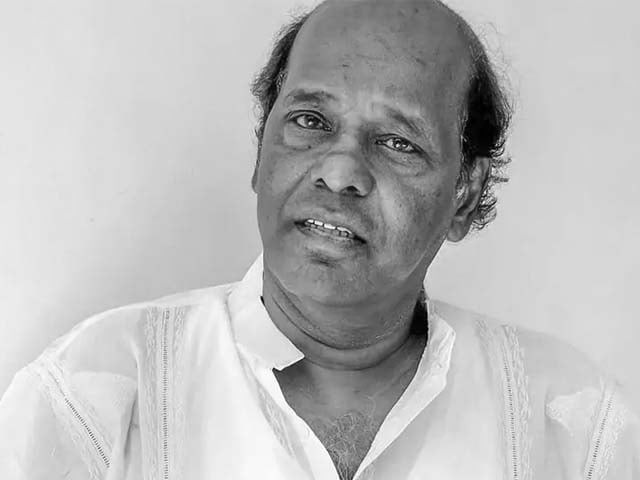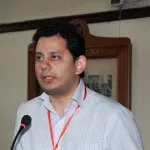Rahat Indori, the eminent Indian poet and film lyricist, passed away on the afternoon of August 11th earlier this week after being diagnosed with Covid-19 just a day before and after suffering two heart attacks in succession. He was born on January 1, 1950 in Indore. He studied initially at home, then ascended the stairs of higher education. He obtained an MA in Urdu, and then got a PhD from Barkatullah University in Bhopal, making teaching his profession and taught at a college. He was also a painter of no mean accomplishment. He had started reciting verses in 1965.
He had published five collections of poetry: Dhoop (Sunlight, 1979), Rut (Season, 1983), Mere Baad (After Me, 1990), Panchavan Darvesh (The Fifth Darvesh, 1992) and Kun fa Yakun (Be, And It Is, 2002). Later in life, in a reversal of the general trend, he became a film lyricist after conquering the world of the Urdu mushaira. The tradition of resistance and highlighting the plight and problems of the common man which Habib Jalib made his trademark in his nazm became the hallmark of Indori in his ghazal.
Thanks to Indori’s elder son Sutlej, we now have the text of the very last ghazal which Indori wrote before his untimely death. While being obsessed with death, the ghazal is also a haunting revelation of the poet’s own awareness of his approaching death, as we find out in the final couplet. This ghazal will undoubtedly become indispensable to understanding the poetic oeuvre of a poet who gave more than 50 years of his life to serving Urdu poetry. I now have the unique honour of translating this poem into English as a posthumous tribute to the memory and legacy of Rahat Indori for the readers of Express Tribune. May I also add that last year I was similarly honoured by translating the very last poem of the great Pakistani poet Fahmida Riaz, a contemporary of Indori, for the Express Tribune as well.
In order to benefit the reader, Rahat Indori’s last ghazal is being presented in the Romanized Urdu, followed by the Urdu text, and finally my humble translation.
~
‘Naye safar ka jo ailaan bhi nahi hota
Toa zinda rehne ka armaan bhi nahi hota
Tamaam phool vohi log tod lete hain
Voh jinke kamron main guldaan bhi nahi hota
Khamoshi oarh ke soi hen masjiden saari
Kisi ki maut ka ailaan bhi nahi hota
Vaba ne kaash hamain bhi bula lia hota
Toa hum par maut ka Ehsaan bhi nahi hota’
نٸے سفر کا جو اعلان بھی نہیں ہوتا
تو زندہ رہنے کا ارمان بھی نہیں ہوتا
تمام پھول وہی لوگ توڑ لیتے ہیں
وہ جن کے کمروں میں گلدان بھی نہیں ہوتا
خموشی اوڑھ کے سوٸی ہیں مسجدیں ساری
کسی کی موت کا اعلان بھی نہیں ہوتا
وبا نے کاش ہمیں بھی بلا لیا ہوتا
تو ہم پر موت کا احسان بھی نہیں ہوتا
‘When the new journey is not announced
Then the desire to live too can be renounced.
All the flowers are plucked by the very people
In whose rooms even a vase is not available.
All the mosques, wearing the silence, sleep in contentment
The death of anybody goes without announcement.
Would that the epidemic have beckoned me too
Then the favour of death on me would not have been due.’



COMMENTS
Comments are moderated and generally will be posted if they are on-topic and not abusive.
For more information, please see our Comments FAQ